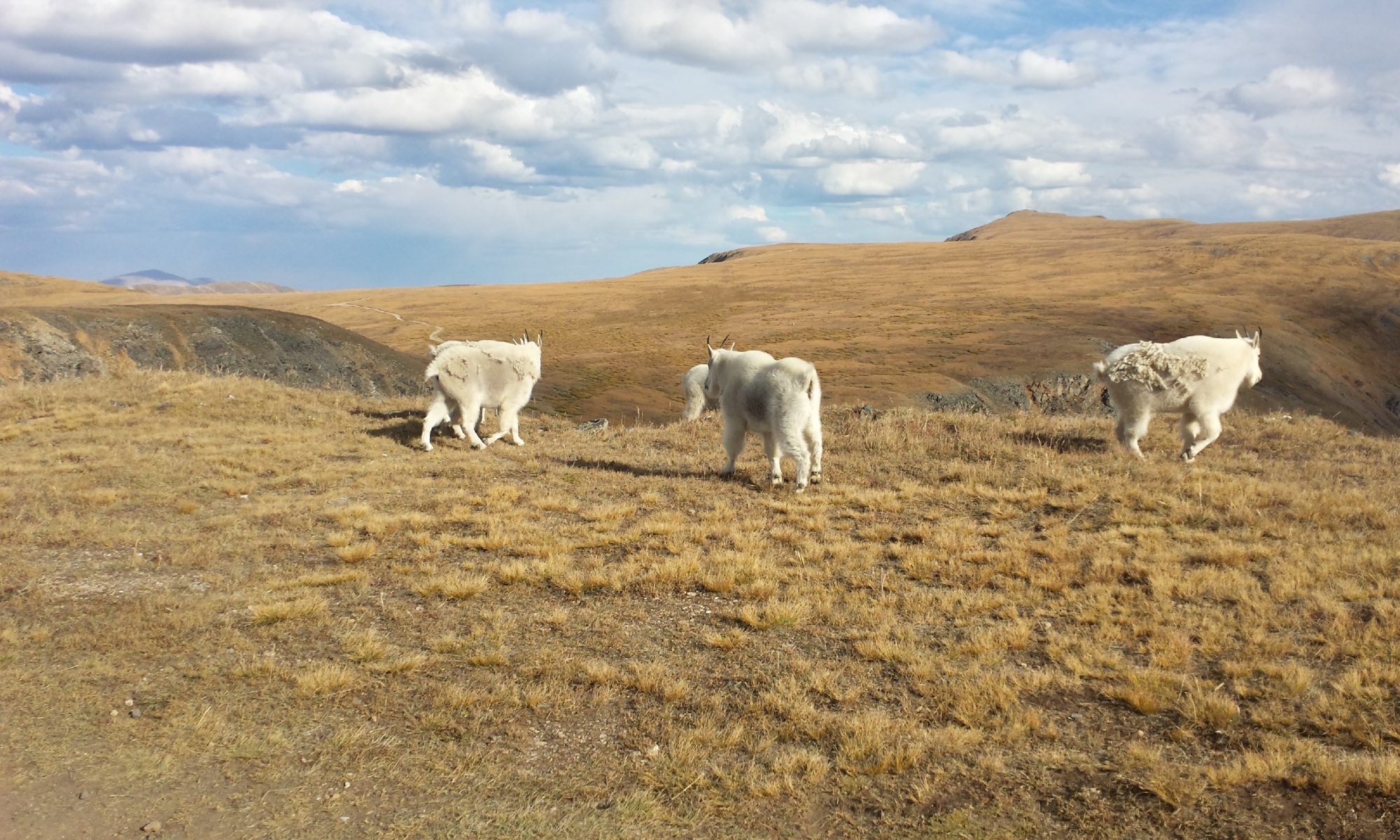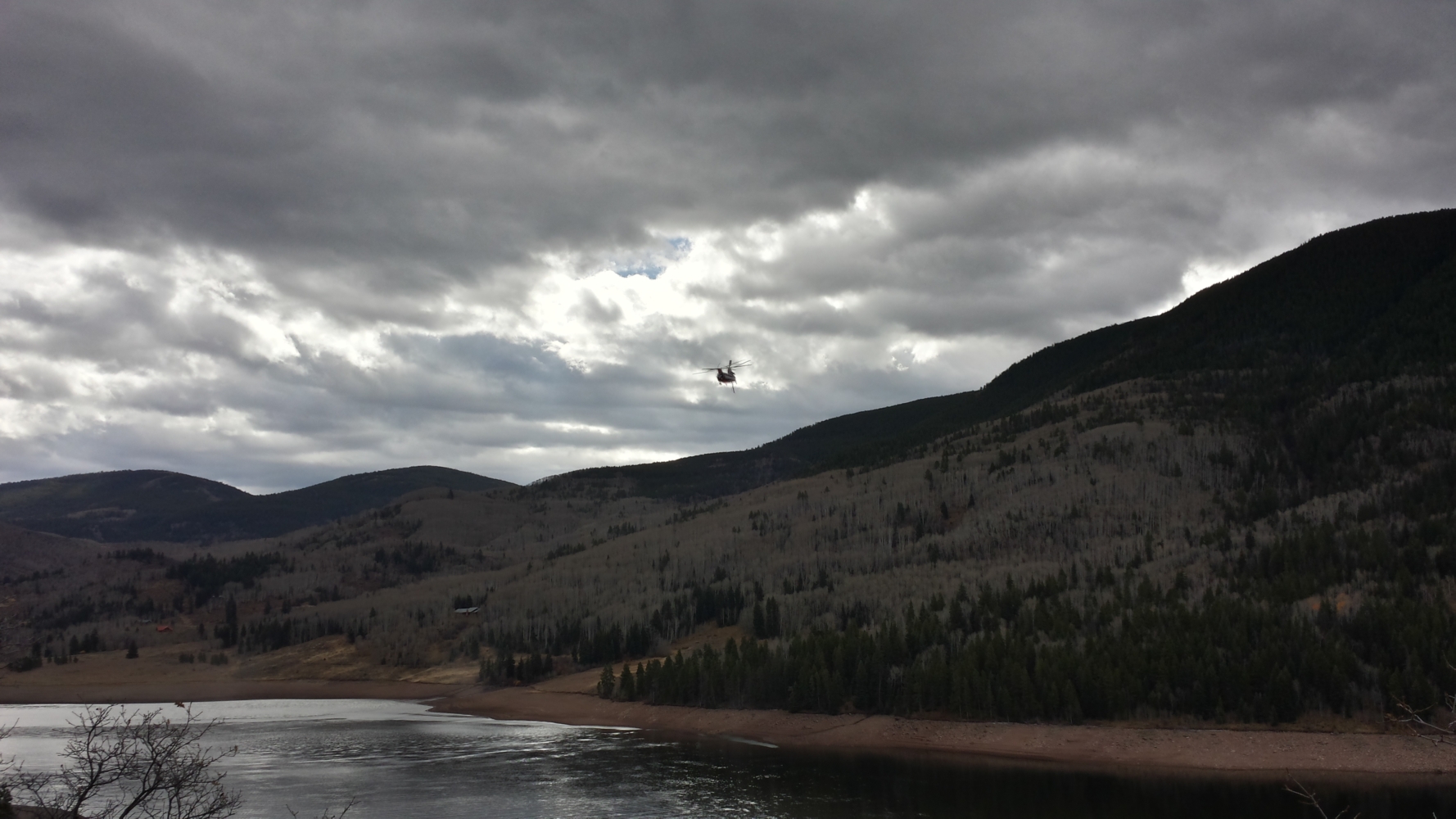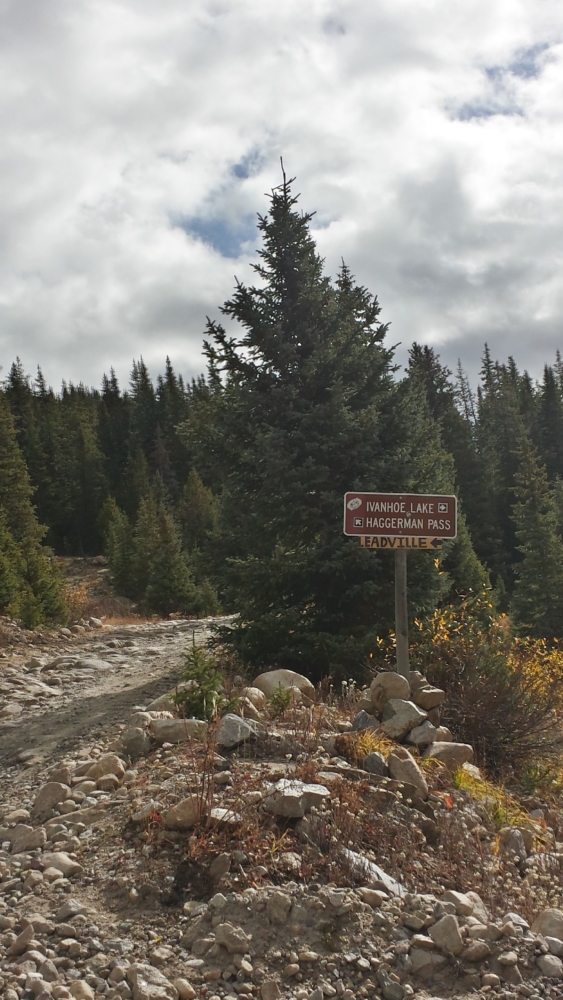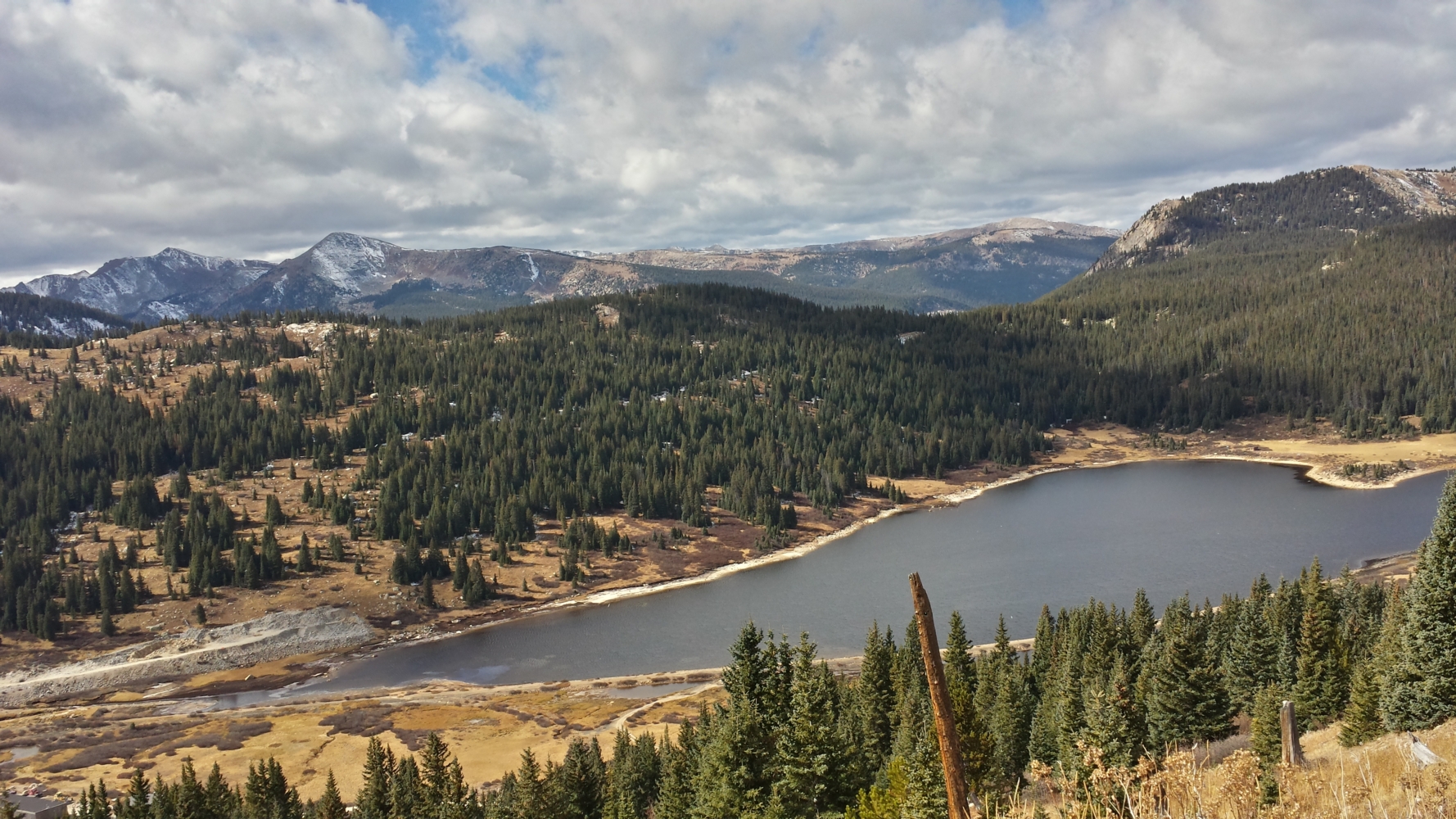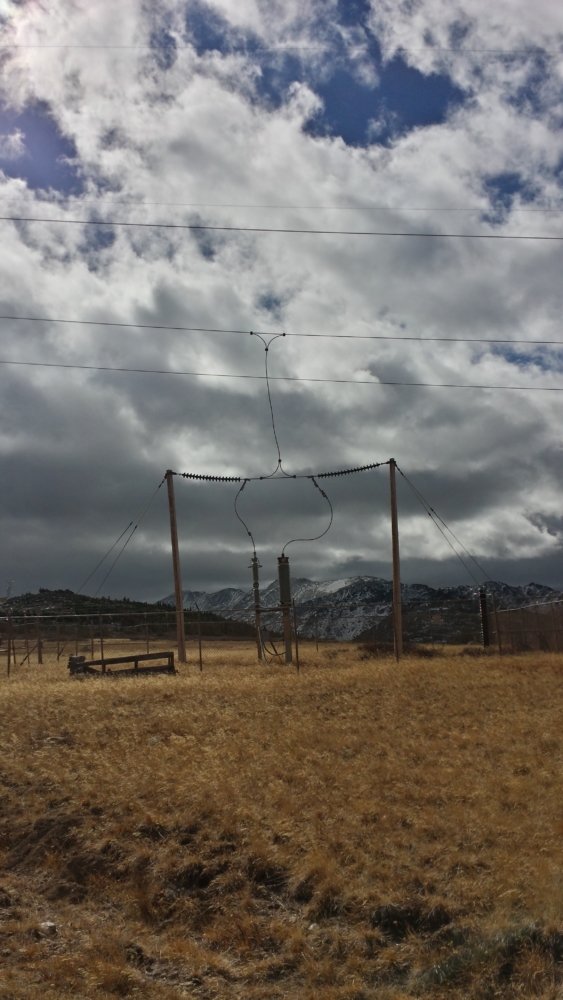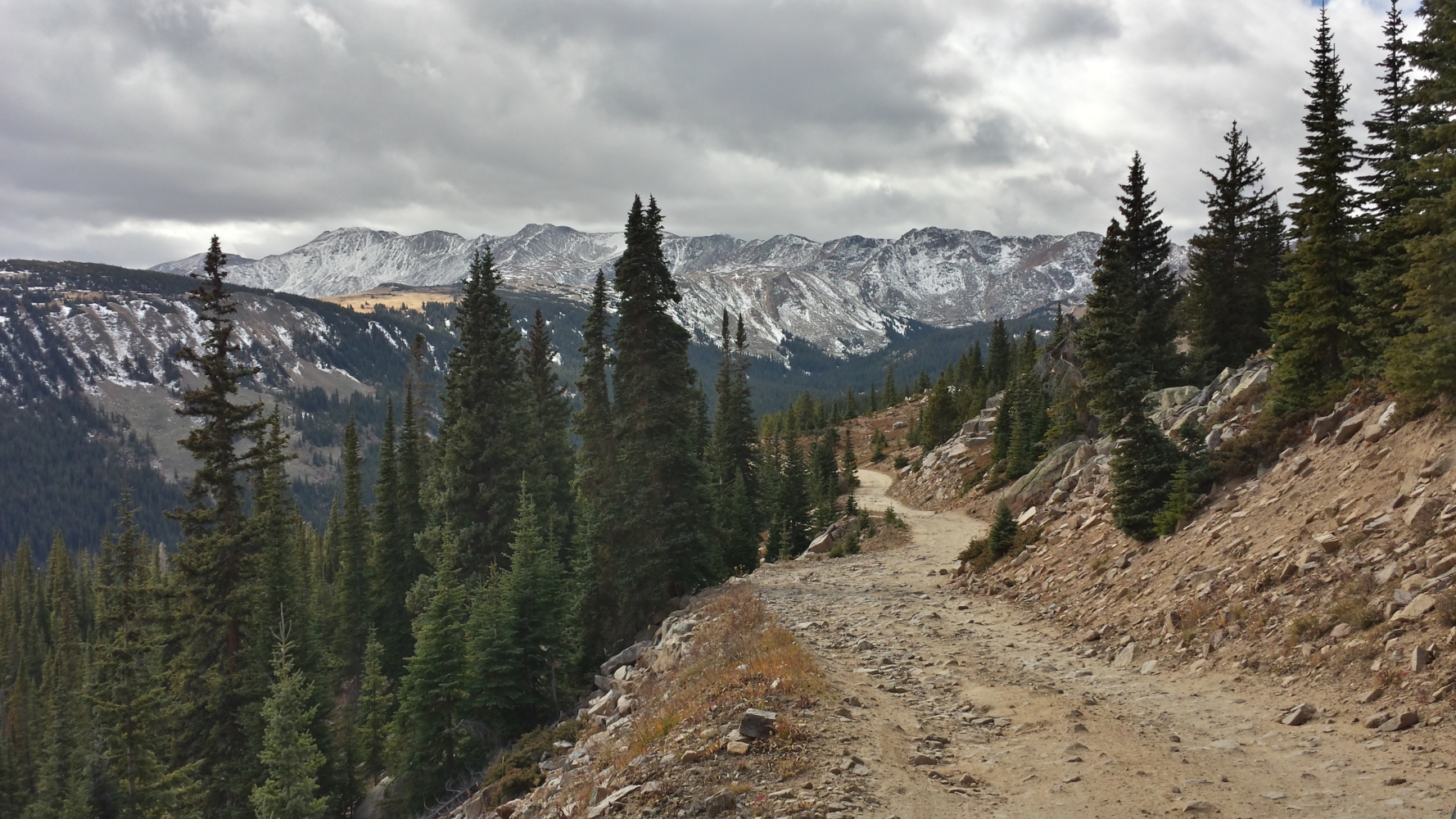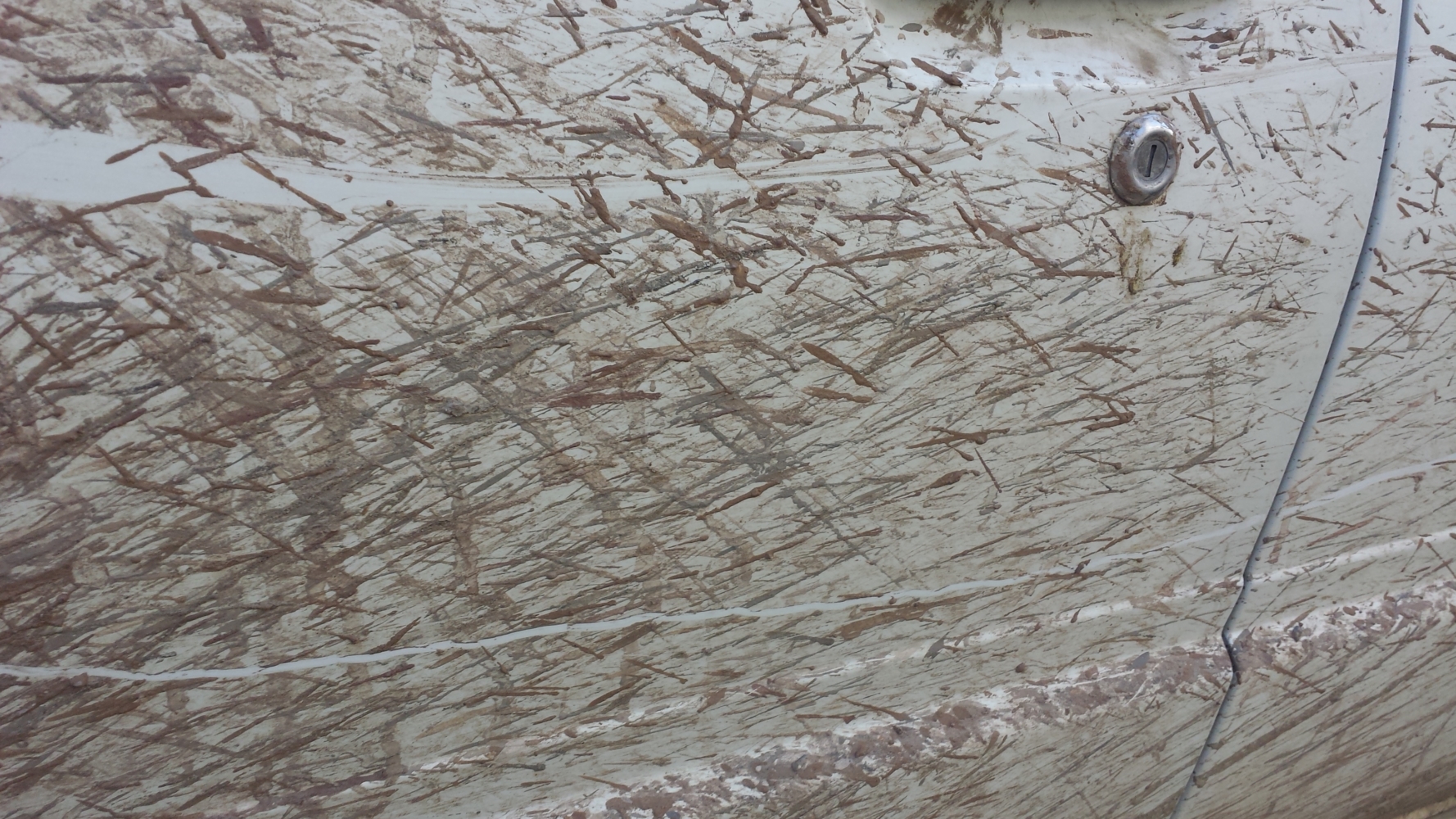On our way from Aspen back to Denver, we decided to go over Hagerman Pass and follow an old continental divide railroad route. Heading up the mountain, we passed an active fire fighting operation on the north side of a reservoir. Two big twin rotor helicopters were sucking water out of the reservoir and dumping it on the mountain above us.
There was some real precision flying to take on all of that water and get it back up the mountain.
After leaving Ruedi Reservoir and the fire fighters, we headed up onto Hagerman Pass.
This way to Leadville!
Looking back south and west toward the general Richmond Hill area although I think there is another range of mountains in between us and Richmond Hill.
Crossing under the big 230 kVA high tension transmission power lines that go between Leadville and the town of Basalt below Aspen.
Looking down on Ivanhoe Lake which was built by the Army Corps of Engineers to divert water via a tunnel from the west side of the continental divide to the east side.
This odd-looking device is attached to one of the three phases on the 230 kVA line at the top of Hagerman Pass. I suspect it’s some sort of lightning arrester although it is only hooked to one phase and we didn’t see any other devices on the several miles of power lines we drove underneath of. For size comparison, the fence around the device is about eight feet tall.
Heading east under the power line and over the continental divide.
Here we are at the summit. The pacific ocean is one way and the atlantic is the other.
Heading down the east side toward Leadville.
This is an old railroad grade so it’s pretty mild but has stunning views. I believe the mountains straight ahead are part of the Collegiate Peaks.
This is the tunnel entrance that the water diversion comes out of. Originally, this tunnel was used for the railroad. For about 30 or so years after the railroad pulled out its lines, this was a regular Colorado highway. Then the highway was rerouted over a different pass. Now the Army Corps of Engineers uses the tunnel to bring water from west to east.
There’s no way that I’d enter this tunnel. At this point, it really is only useful for the water pipe that runs through it. There used to be another tunnel farther up on the mountain that I believe is now collapsed. The railroad originally went over the top of the pass, then through the high tunnel, and then the low tunnel before pulling out the tracks completely.
Looking down from above on some of the cribbage that keeps the tunnel entrance from being inundated with rockfall.
Down at the reservoir to the west of Leadville as we head back to Denver.
We got the truck pretty muddy this weekend splashing around in the mud and having a great time exploring another part of Colorado.
